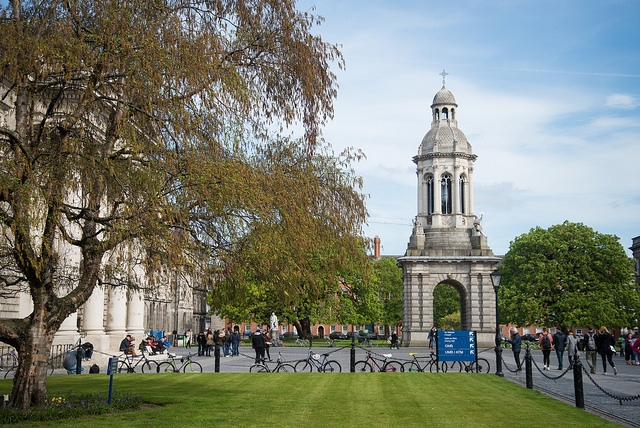I recently met with one of my lecturers to discuss prospective essay titles for an upcoming assignment. Full disclosure: it was probably one of the most anxiety-inducing events of my month thus far (and I have the dubious pleasure of working in a bar during Twelve Pubs December).
I had to do pre-meeting deep breaths and I was horribly nervous about a potential handshake because my palms were so sweaty. I had to have a strong coffee afterwards.
I am an anxious person generally, and I would have to concede that my reaction was probably more extreme than that of the average student. But in light of the Irish Survey of Student Engagement’s findings about student dissatisfaction with student-staff interaction, I wonder whether my discomfort actually speaks to a university culture in which interactions between lecturers and students are all too rare, so much so that a face-to-face meeting becomes an occasion for worry and stress.
Seemingly, the major finding of the survey was that the interactions between students and staff were extremely dissatisfying as regards career plans and non-course specific activities and ideas. When I read this, my initial reaction was to wonder whether this was fair: can students really expect overworked lecturers to act as career guidance counsellors or to be involved in university life?
If students feel as though lecturers are involved in university life surely they will feel more comfortable approaching their lecturers for advice and assistance?
On reflection, I think that maybe they can. If students feel as though lecturers are involved in university life, if they can establish a rapport, if not a relationship, surely they will feel more comfortable approaching their lecturers for advice and assistance? Furthermore, we are extremely fortunate in Trinity to have genuinely world-leading lecturers who would probably be better placed, with their experiential knowledge and contacts, than a generic guidance counsellor to provide students with subject-specific, real-world career advice.
That said, it is unlikely that private-sector employees would be expected to perform duties outside the remit of their job specifications. Can we expect our public-sector lecturers to take on these extra responsibilities as regards career guidance and student organisations without financial recompense? Perhaps what we really need is to reconsider and even reconfigure what and how we understand lecturers, and sketch a blueprint for what we want from our educators. It’s 2017, and high time that the ivory tower of the university went the same way as all those Celtic Tiger-era ghost estates: demolition. Breaking down or even creating windows in the walls between students and lecturers so that both can give feedback to one another will make for a better university and educational experience for everybody.
Meeting with a lecturer shouldn’t feel like being hauled into the principal’s office for texting in class or sticking gum under your desk
The greatest strength of the survey was that it considered how engagement differed in the context of different disciplines. For example, it acknowledged the greater engagement between STEM students and their lecturers as compared to their counterparts in the arts. A science student pays the same fees as an arts student, yet while a science student probably has upwards of 20 contact hours every week, the arts student more than likely has less than 10. In some cases, less than five. It can be hard not to feel a bit short changed by the disparity. Perhaps if there was to be greater engagement between students and lecturers in the arts, this would feel less imbalanced.
Meeting with a lecturer shouldn’t feel like being hauled into the principal’s office for texting in class or sticking gum under your desk. It shouldn’t consist of going in with an idea about the postmodernism of reality TV shows like Celebrity Big Brother and stars like “memay” queen Gemma Collins, before getting so flustered in the unfamiliar situation that you leave, having instead agreed to write an in-depth exposition on French feminist theory, the Lacanian self and the “I-thou” philosophy (a task for which you are, in all honesty, ill-equipped).
I think this survey’s findings endorse what I personally think would be a great sea-change in the university environment. I can’t help but feel more engagement will mean better, more focused and more responsive students alongside happier, more rewarded lecturers. Maybe even (dare I say it) more scholarship on Speidi, and less on Spinoza.







